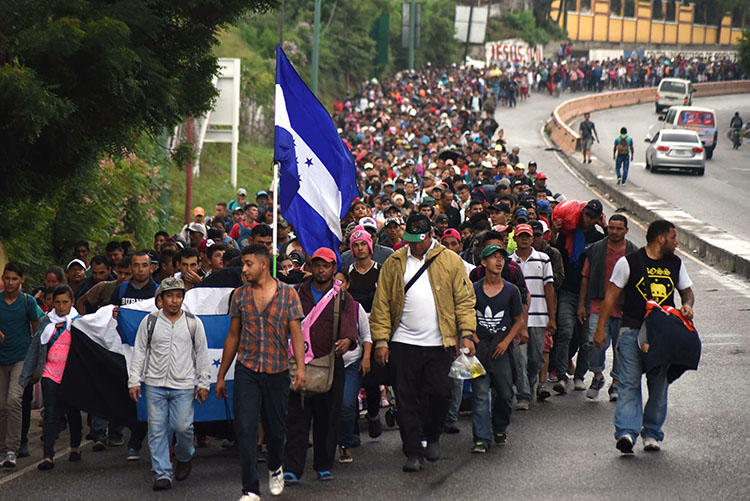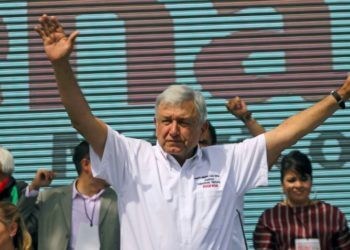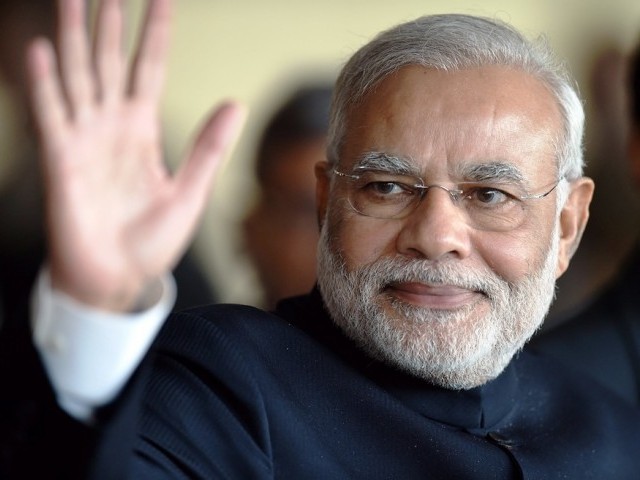As Mexico’s president-elect Andres Manuel Lopez Obrador was sworn into office on December 1, a caravan of thousands of Central American migrants traveled through Mexico towards the border with the United States. Unlike predecessors, who cooperated with the U.S. to militarize Mexico’s southern border to curb undocumented immigration, Lopez Obrador rejected proposed aid from the U.S. to facilitate the detention and deportation of Central American migrants, even before he took office.

Lopez Obrador’s approach, which has been dubbed the “Marshall Plan for Central America,” is a radical shift away from Mexico’s current immigration policies. The plan aims to inject $30 billion into economic development in Central America, which, in time, is expected to reduce migration more effectively than policies focused on containment and deportation.
Ironically, Lopez Obrador’s plan echoes the recommendations of a 1990 report commissioned by the U.S. Congress that concluded as follows:
There are no short-term solutions to the problem of undocumented migration. Regardless of our efforts and those of the countries themselves, the United States will continue to be a magnet so long as our wages are many times more attractive than theirs. Moreover, the major paradox of our study is the conclusion that economic development in the short term stimulates migration by raising expectations and enhancing people’s ability to migrate. It takes many years – even generations – for sustained growth to achieve the desired results.

Over the course of the 1990s and 2000s, the congressional report proved to be prophetic. Despite massive increases in border security and enforcement along the U.S.-Mexican border, undocumented migration from Mexico rose to all-time highs, even despite the enactment of NAFTA in 1994. In time, as the Mexican economy expanded and employment opportunities rose, migration to the U.S. began to drop, hitting a net-zero by 2011. Today, while hundreds of thousands of Mexicans continue to leave for the U.S. each year, many more are returning back to Mexico.
In light of this experience, there are several lessons we can extract for policymakers in the U.S. and Mexico who aim to reduce migration from Central America.
First, it is impossible to control migration flows through security measures. While border security may appeal to conservative voters, it has relatively little effect on actual migration rates.
Second, migration is a natural response to opportunity structures. Thus, as long as opportunities between Central America and the U.S. remain highly unequal, a certain percentage of people from Central America will continue to search for more stable conditions north of the border.
Third, economic development will initially increase migration because it enhances people to migrate. There is no way around this. And therefore, to work effectively, development plans for Central America need to include practical work visa programs for Central Americans in the U.S. and Mexico.
Fourth, migration is a natural part of integrated economies. Wherever goods and services flow relatively freely across borders, it is only natural to expect that humans will do the same. On this note, development policies in Central America should be accompanied by educational policies in the U.S. and Mexico that encourage people to think about migration as a natural process inherent to the global economy.
Finally, policymakers would be wise to remember that people do not migrate due to abject poverty alone. Rather, people leave their homelands when they sense that there is no viable path to progress. Typically, immigrants leave highly unequal social spaces where caste-like social structures rigidly restrict social mobility. This is particularly true in Latin America, the world’s most unequal region.
If Lopez Obrador’s Central American development plan is to work, it will need to create jobs but just as importantly, it will need to effectively reduce economic and social inequality. In the end, this may prove to be the more difficult task due to Latin America’s caste-like social classes, which closely resemble their colonial roots.
As Uruguay’s former president and current senator Jose Mujica said in 2010, “We live in the most unequal and unjust continent in the world. We have so many debts to our people.”
And no debt is larger than the one Latin America owes to its migrants, who have defied all odds in their quest for a better life. Perhaps, in 2019, Lopez Obrador and his Central American counterparts will finally set the foundations for a more equal future.
Disclaimer: The views and opinions expressed here are those of the author and do not necessarily reflect the editorial position of The Globe Post.




















